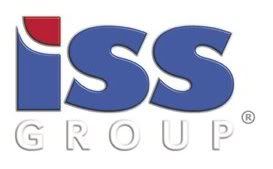Microsoft adds BI to its Office suite with a bang!
Microsoft adds BI to its Office Suite with a Bang!
Perhaps Microsoft made the last version of Office a little too useful, as customers aren't exactly clamoring for upgrades. So to help boost sales growth, Microsoft is bringing a whole new area into Office.
Microsoft has announced plans to offer Business Intelligence (BI) technology inside of Office and Microsoft Dynamics CRM. As stated by Chris Caren, a general manager with Microsoft, "We feel confident that we'll serve the needs of the vast number of people using other business intelligence tools today."
Perhaps that smacks of a little hubris, but then again, Microsoft has had a habit of biting off large application areas, a little at a time. Business Intelligence is a $15 billion industry spread among a number of big, long term vendors such as Business Objects (that bought the Crystal Reports tools as well,) Cognos, and Oracle. And while Microsoft has been in the area with tools for almost ten years, they haven't really been a major player until recently.
In the next version of Office (currently called Office 12) Microsoft is promising a more dynamic version of Excel. Spreadsheets will stay up-to-date, note changes made by one user in other users' versions of the file, and if needed, even self destruct. Customers will be able to do data mining as well. Another data-tracking offering, Scorecard Manager, is a separate server-based package that will be sold separately and focus on keeping and delivering "Key Performance Indicators" to corporate users.
Already users can download "templates" for KPIs to use against SQL Server, and dramatic improvements are coming with the new release of SQL Server 2005. In fact, Microsoft has replaced Crystal Reports, often delivered as the "reporting" solution with a number of its business applications, including Microsoft CRM, with SQL Server Reporting Services, and shows how these can be enhanced with standard functionality in views and reports, with all of them able to do live linking into Office, especially Excel. Business users are already very happy to use Excel and it's pivot tables to manipulate data out of corporate systems. Microsoft is just extending this model, and making it even easier to do.
The desktop suite, Microsoft Office System, with Word, Excel and PowerPoint, is a ubiquitous and profitable product, with reported margins of 72%. It is second only to Windows OS in profitablity. But the growth of Office sales has slipped, dropping to 3% year-over-year, totalling only $11 billion in Microsoft's 2005 fiscal year that ended in June. Microsoft now has to struggle to compete with what many customers perceive as "good enough" functionality in earlier releases, and only 25% of companies are running the Office System 2003. Microsoft has done many things to convince users to upgrade, including new licensing models, enhanced functionality and ease of use.
So Microsoft has to add new products that tie into (and extend) the company's honeypot, Windows and Office, which account for 80% of revenue and 140% of profit. (Three divisions, including hardware and Microsoft Business Solutions are unprofitable.)
But this is a risky endeavor.. and while Microsoft has shown in the past that they are willing to make the big bet for a bigger return, it's getting harder and harder to flog the old standards, and more and more big Microsoft "Partners" are finding that Microsoft wants to take over product areas that previously were left alone. This will continue to test old partnerships. And while it's obvious that Microsoft must agressively compete with longstanding partners, it is one way to convince customers of the need to upgrade. However, the previous partners may find a need to endorse other technology platforms, if they can find them. Unix still isn't perceived as a viable desktop solution except for Apple's OS X.
However, Microsoft's vision is to bring relevant business data to workers who have previously been limited because the software to do so was either too expensive, to complicated, or too limited. Users won't have to learn a new tool, just make use of extentions to the tools they already use, such as Excel. Microsoft says that they will make business intelligence much more mainstream. However, if they present it as too simple ("Just plug and run") then they can actually hurt their market because of unrealistic expectations by the customers. BI is not as simple as Word, and it requires a lot of thought and training to deploy any application in a way the delivers value to the business users.
We will have to wait and see what comes to pass.


0 Comments:
Post a Comment
<< Home